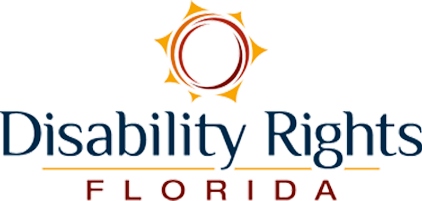Disability Rights Florida Blog
Introduction
School’s back in session! It is an exciting time for students, but it is also an important time to ensure that students with disabilities have the support and information they need to succeed.
The variety of terms, concepts, and information regarding education for students with disabilities can be overwhelming. That’s why we’re here! We’ve created a guide below with some top terms and concepts you may encounter this school year.
Disability Rights Florida wants to empower students and their supporters to take on their education. We hope that by making these terms more accessible and easier to understand, you’ll have the language and confidence to take on this school year.
And students, good luck! We’re rooting for you!
Common Disability-Related Education Terms
The Individual Educational Program (or Plan) (IEP)
The IEP is a legal document that outlines the specific supports and services that a student with a disability will receive to ensure they receive a free and appropriate public education.
504 Plan
Individuals with disabilities who require accommodations in education, but do not require specially designed instruction, may have a plan similar to the IEP. This plan, typically called a "504 Plan," is derived from Section 504 of the Rehabilitation Act.
Transition Individual Educational Plan (TIEP)
The IEP determines transition services for graduating students to reach their desired outcomes, such as additional education or job training. Once finalized, it becomes a Transition Individual Educational Plan (TIEP).
Individualized Plan for Employment (IPE)
Students who receive an IEP or a 504 Plan in school may receive an Individualized Plan for Employment (IPE) when they leave school if they qualify for services from the Division of Vocational Rehabilitation (DVR) or the Division of Blind Services (DBS). This plan is intended to help them achieve successful employment with the assistance of DVR or DBS. The IPE serves as a personalized guide to employment success. It identifies services and supports that an individual needs to prepare for and maintain employment.
Free and Appropriate Public Education (FAPE)
FAPE is an acronym for Free Appropriate Public Education and is a powerful legal right for children with disabilities. This right mandates that schools offer special education services and supports that cater to the unique needs of each student.
Extended School Year (ESY)
Extended School Year services are extra supports provided to students with ongoing needs beyond the standard school year. These services are tailored to individual needs, including academic tutoring, therapy, and more. They are free for eligible students and help ensure success in the classroom and beyond.
Least Restrictive Environment (LRE)
The Least Restrictive Environment is a concept that requires schools to provide disabled students with the opportunity to learn alongside their non-disabled peers as much as possible. To achieve this, aids and services should be made available to them in the classroom.
Individuals with Disabilities Education Act (IDEA)
The Individuals with Disabilities Education Act ensures students with a disability are provided with a Free Appropriate Public Education that is tailored to their individual needs. The IDEA establishes the right to an IEP.
Exceptional Student Education (ESE)
In Florida, special education is called Exceptional Student Education or ESE.
Accommodation
Accommodations are provided to students with disabilities to ensure they have equal access to the classroom and materials as non-disabled students. These adjustments and assistance are necessary to level the playing field for all students.
Leave Us Your Comments
Please do not leave requests for assistance in the comments. Blog comments are not monitored by intake staff and your request may not be seen. Visit our Online Intake Page to request our services.
Commenting is not available in this channel entry.
Comments